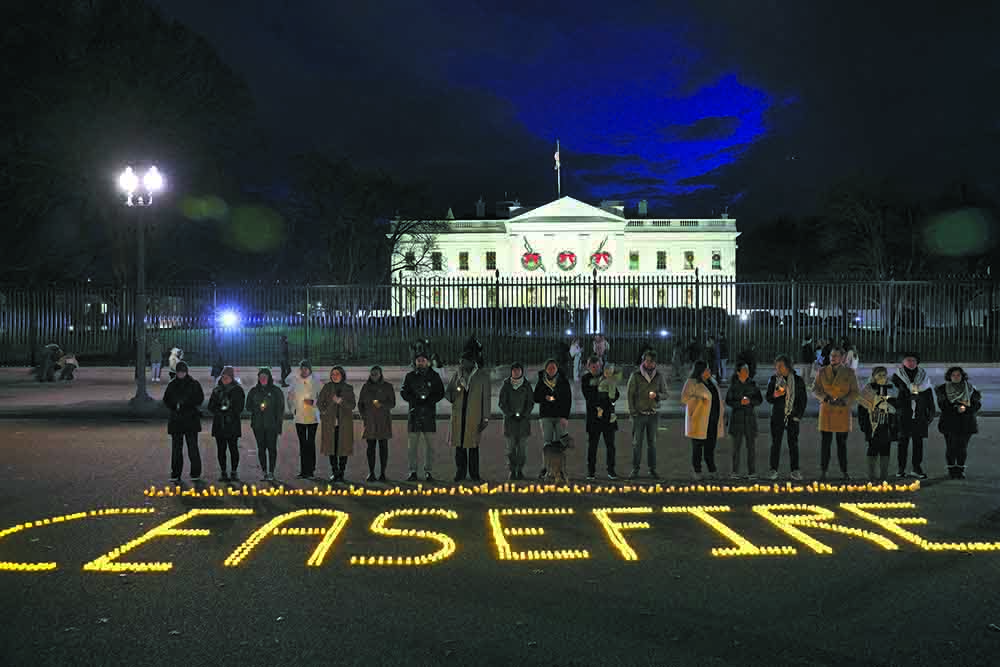Pleas for peace in Gaza grow louder


Civilians' lives at stake as calls intensify for cease-fire, delivery of humanitarian aid
More than two months into the violent conflict in Gaza, Abdullah Waleed and his family members had a close brush with death in the early hours of the morning.
An Israeli airstrike at 3 am instantly leveled his neighbor's house and damaged his own home, leaving 24 people, mostly women and children, dead.
"It was a terrifying moment for our family, especially our kids. There is no place safe in Gaza," said the senior fellow and Palestine coordinator at Asia Middle East Center for Research and Dialogue currently based in Rafah, south of Gaza.
Waleed, a father of two boys, communicated intermittently via mobile phone messaging service channels. He said internet connection was bad because much of the infrastructure had been damaged by the Israelis.
"Our neighborhood was among the 'safe zones' announced by (Israel Defense Forces) where they've asked people to (flee). Yet, they keep on attacking civilians in our neighborhood," Waleed said.
He and his family are now among the 1.9 million — out of Gaza's 2.3 million population — who have been internally displaced since fighting broke out between Hamas and Israeli forces on Oct 7.
The surprise attack on Israel by Hamas militants on that day left 1,200 dead, while 240 people were taken as hostages.
In retaliation, Israel became determined to wipe out Hamas, with Prime Minister Benjamin Netanyahu vowing that his country would fight "until victory" as the Palestinian death toll reached 20,674 as of Tuesday, according to the Ministry of Health in Gaza.
Whether Waleed would live to see another day depends very much on the world coming together to pressure Israel and Hamas to agree to a sustainable cease-fire deal.
The UN Security Council on Friday passed a key resolution, emphasizing the immediate acceleration of aid deliveries to the distressed civilians in Gaza, but without the original call for an "urgent suspension of hostilities" between Israel and Hamas. Israel and the US oppose a cease-fire because they believe it would only benefit Hamas.
On Monday, Israel and Hamas gave cool public receptions to an Egyptian proposal to end the conflict. But they stopped short of rejecting the plan altogether, raising the possibility of a new round of diplomacy to halt the Israeli offensive in the Gaza Strip.
The Egyptian plan calls for a phased hostage release and the formation of a Palestinian government of experts to administer the Gaza Strip and occupied West Bank, according to a senior Egyptian official.
Netanyahu did not comment directly on the proposal. But speaking to members of his Likud Party, he said he was determined to press ahead with Israel's offensive.
"The situation is so complicated and sad to the point that we who live here can't describe it. The aid that enters Gaza is so minimal and not sufficient at all. It's a drop in the ocean. Most people and places in Gaza Strip don't receive any of this aid at all, mainly due to the Israeli ground invasion and attacks," Waleed said.
"Winter is making life much more complicated. It's the cold season here in Gaza with heavy rain and wind. People, mainly those who live in tents, are suffering a lot. Most people can't afford to buy anything due to the collapse in the economy," he said.























